Custom Siding Solutions to Match Your Style
Siding installation is a key component in enhancing the durability, appearance, and energy efficiency of a building. According to industry statistics, proper siding can increase a home's insulation value by up to 20%, resulting in lower energy costs. The process involves selecting the appropriate siding material, preparing the surface, and securely attaching the siding to ensure longevity. Proper installation protects structures from weather elements such as wind, rain, and UV rays, which can cause deterioration over time. With a variety of options available, homeowners can choose siding that complements their aesthetic preferences while providing long-term performance. Skilled installation ensures that siding performs as intended, reducing the need for repairs and maintenance in the future. This service is essential for maintaining the structural integrity and curb appeal of residential and commercial properties alike.
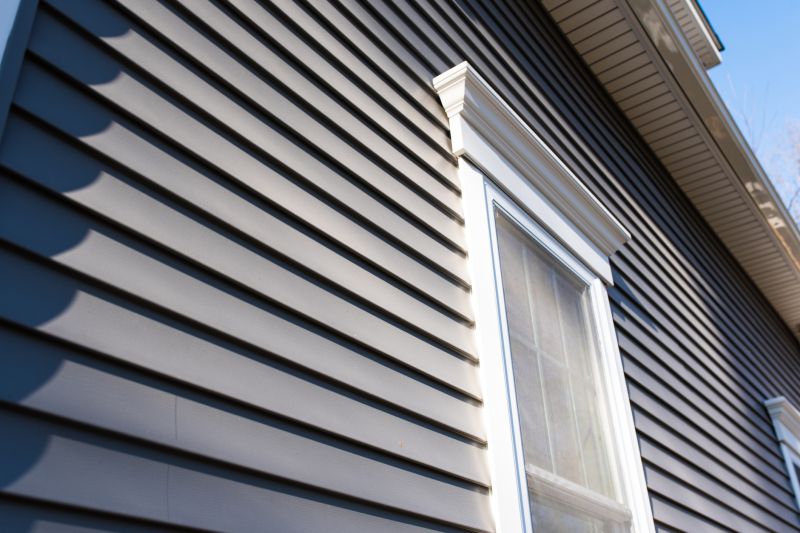
Vinyl siding offers a cost-effective and low-maintenance option, providing a clean, modern look for homes.
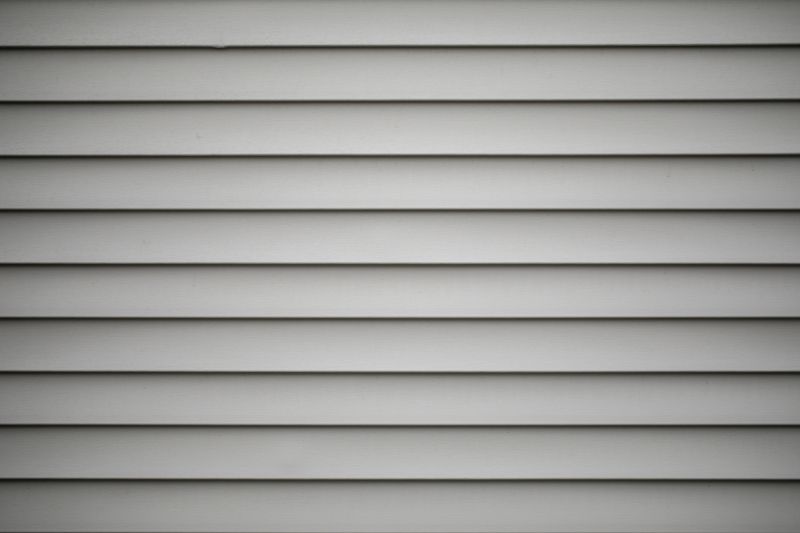
Fiber cement siding is durable and resistant to pests and fire, making it a popular choice for long-lasting exteriors.
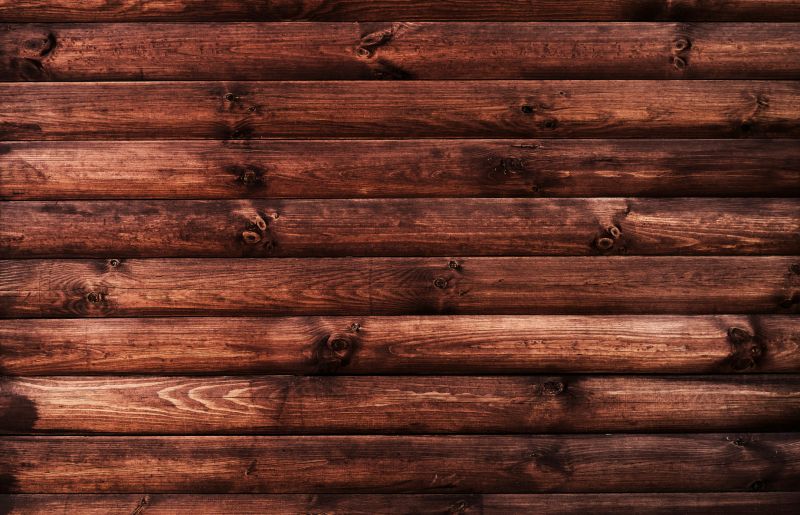
Wood siding provides a classic appearance with customizable options, requiring proper sealing and maintenance.
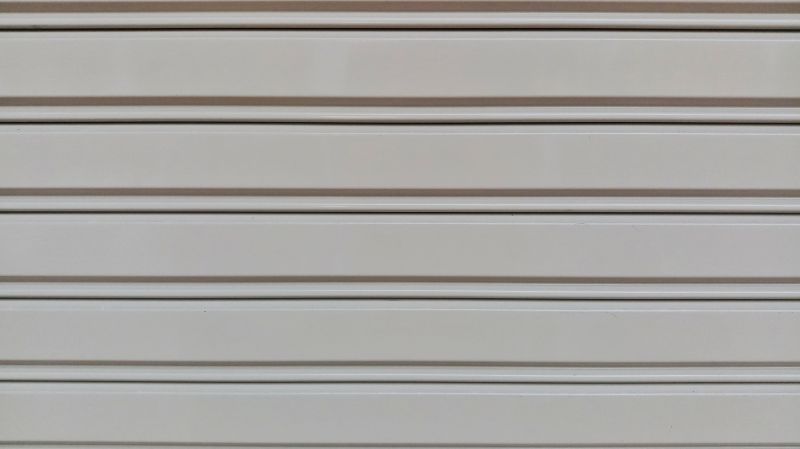
Aluminum siding is lightweight and resistant to rust, suitable for various architectural styles.
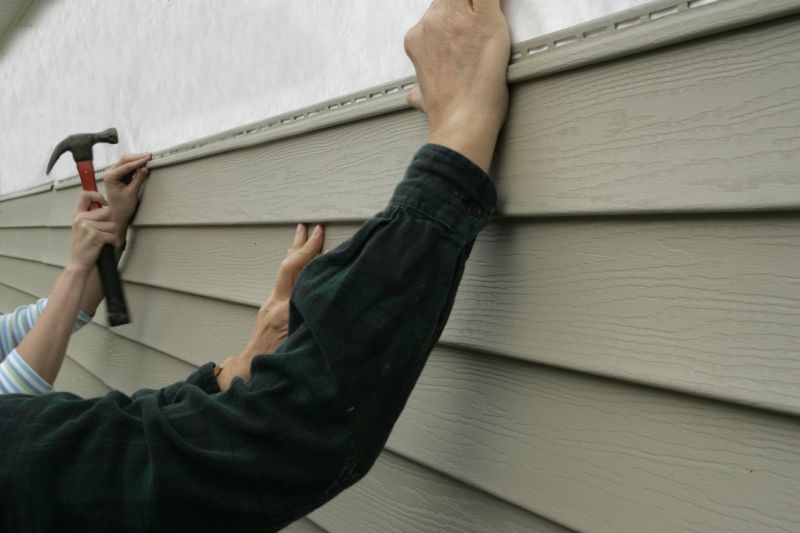
Insulated siding enhances energy efficiency by adding a layer of thermal insulation to the exterior.
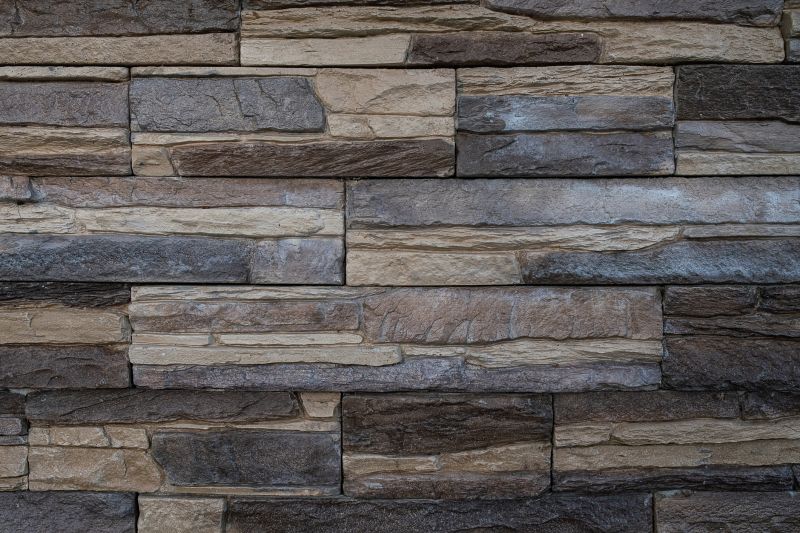
Stone veneer adds a natural, upscale look and improves the exterior's durability and aesthetic appeal.
Vinyl siding is a versatile, affordable option that is available in many colors and styles, requiring minimal upkeep.
This siding type offers exceptional durability and resistance to weather, pests, and fire, making it suitable for various climates.
Wood siding provides a timeless aesthetic, with options for staining or painting to match any design preference.
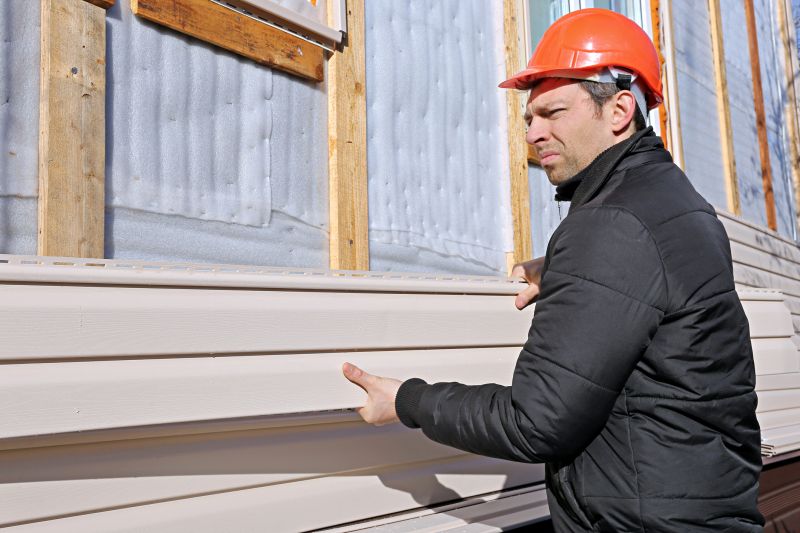
Professionals can efficiently repair or replace damaged siding to restore the exterior's appearance and protection.

Adding insulation improves energy efficiency and comfort by reducing heat transfer through exterior walls.

Custom siding options allow for unique architectural features and personalized exterior aesthetics.

Proper surface prep ensures the siding adheres correctly and lasts longer, preventing issues like warping or cracking.

Sealing joints and edges enhances protection against moisture infiltration and extends siding lifespan.

Regular cleaning maintains appearance and prevents mold, mildew, and dirt buildup.
| Type of Siding | Description |
|---|---|
| Vinyl Siding | Affordable, low-maintenance, available in many colors and styles. |
| Fiber Cement Siding | Durable, resistant to pests, fire, and weather conditions. |
| Wood Siding | Classic aesthetic, customizable with stains and paints. |
| Aluminum Siding | Lightweight, rust-resistant, suitable for various architectural styles. |
| Insulated Siding | Enhances energy efficiency with thermal insulation. |
| Stone Veneer | Natural appearance, high durability, upscale look. |
| Engineered Wood Siding | Resistant to pests and rot, with the appearance of traditional wood. |
| Metal Siding | Modern look, highly durable, low maintenance. |
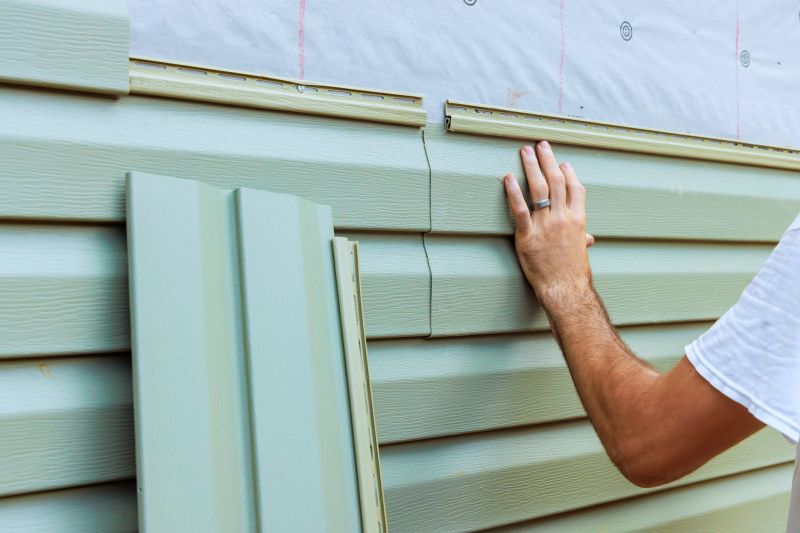
The process involves surface preparation, material selection, and precise attachment for lasting results.
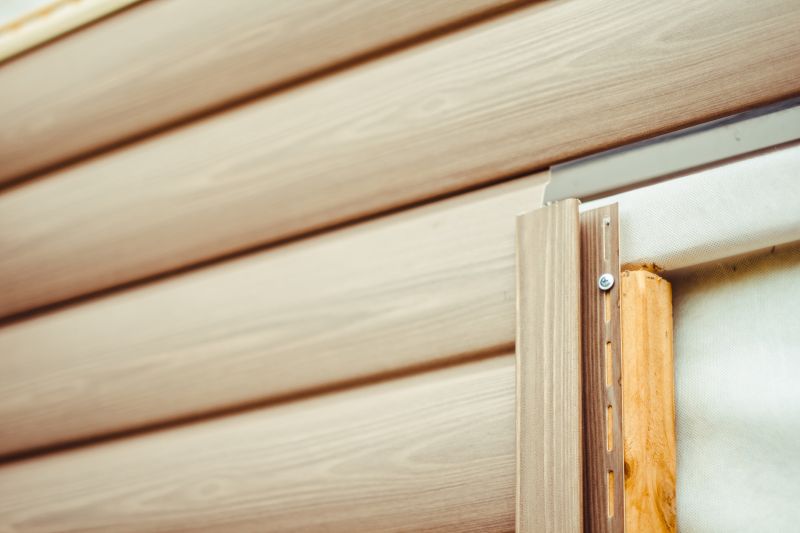
Selection depends on climate, aesthetic preferences, and budget considerations.
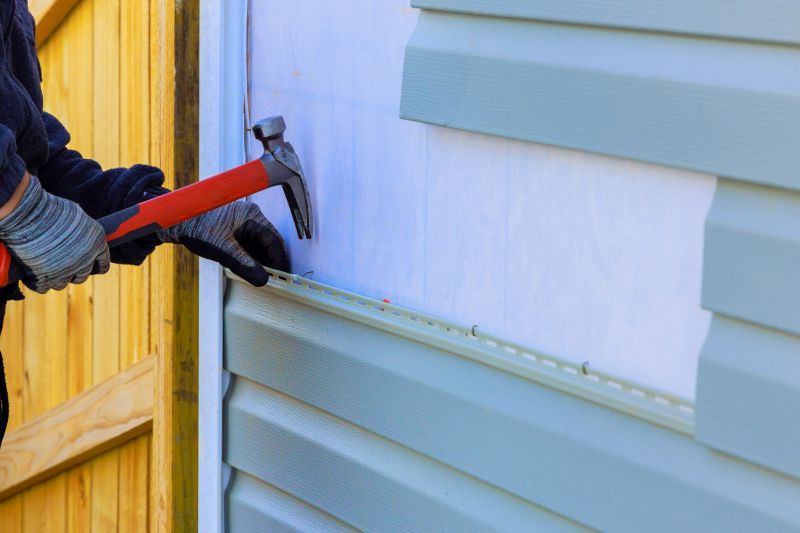
Ensures proper fit, alignment, and sealing for optimal performance and appearance.
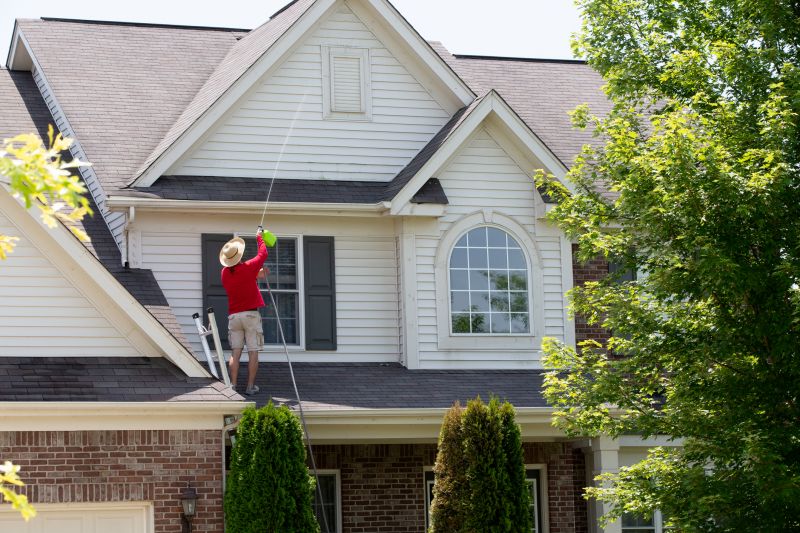
Regular inspections and cleaning prolong the lifespan and keep exteriors looking fresh.
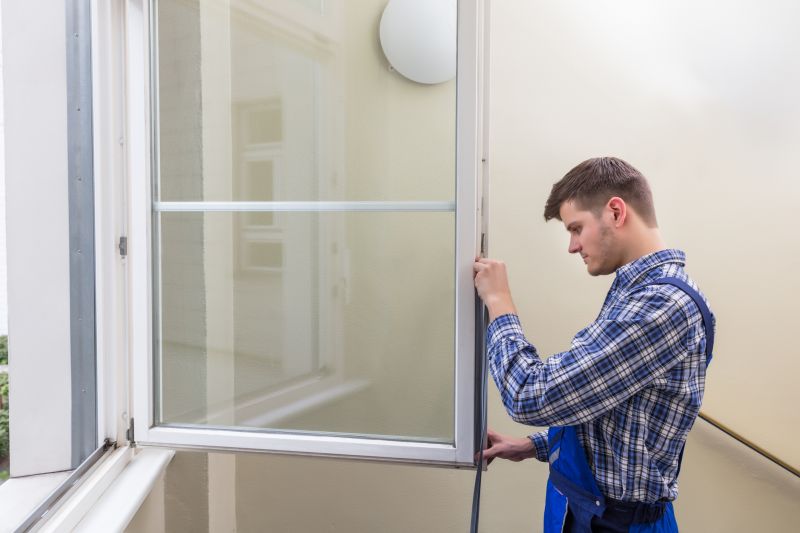
Proper sealing and flashing prevent moisture intrusion and damage.
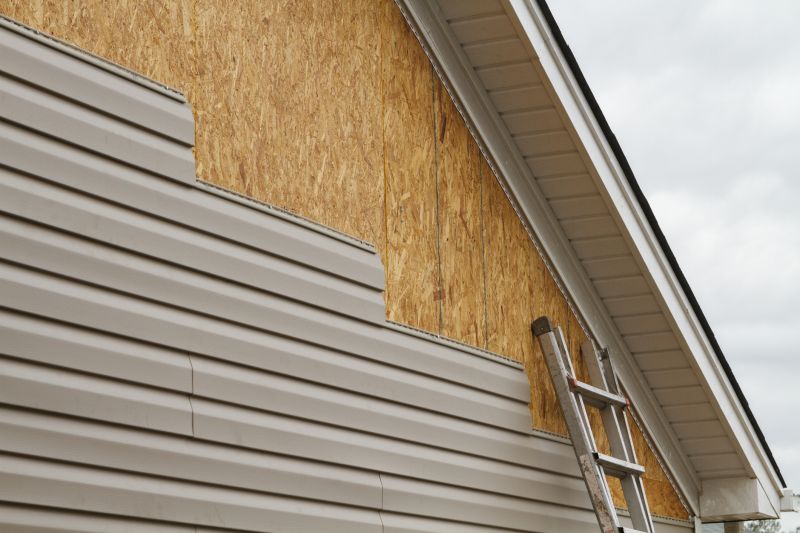
Advances include insulated panels and weather-resistant coatings for improved durability.
A siding installer plays a vital role in ensuring that exterior cladding is properly installed, aligned, and sealed to withstand weather conditions and provide aesthetic appeal. Skilled installers assess the structure, prepare surfaces, and select appropriate materials to meet project specifications. Their expertise ensures that siding is securely attached, reducing the risk of warping, cracking, or detachment over time. Proper installation also involves weatherproofing techniques that prevent moisture infiltration, which can lead to mold and structural issues. An experienced siding installer stays updated on best practices and uses specialized tools to achieve a professional finish. Their work directly impacts the longevity, appearance, and performance of the exterior envelope of a building.
Hiring a professional for siding installation offers numerous benefits, including expert craftsmanship, adherence to best practices, and assurance of a high-quality finish. Professionals have the experience to handle complex details, such as corners, joints, and transitions, ensuring a seamless appearance. They also possess the necessary tools and knowledge to address potential challenges during installation, reducing the risk of costly mistakes. Proper installation by skilled tradespeople can extend the lifespan of siding materials and maintain warranty validity. Additionally, professionals can advise on the most suitable siding options for specific climates and architectural styles, optimizing both function and curb appeal. Engaging a qualified installer ensures the job is completed efficiently, safely, and to industry standards, providing peace of mind for property owners.
Interested in upgrading the exterior of a property with quality siding? Fill out the contact form to receive a quote for siding installation services and explore options tailored to specific needs and preferences.



